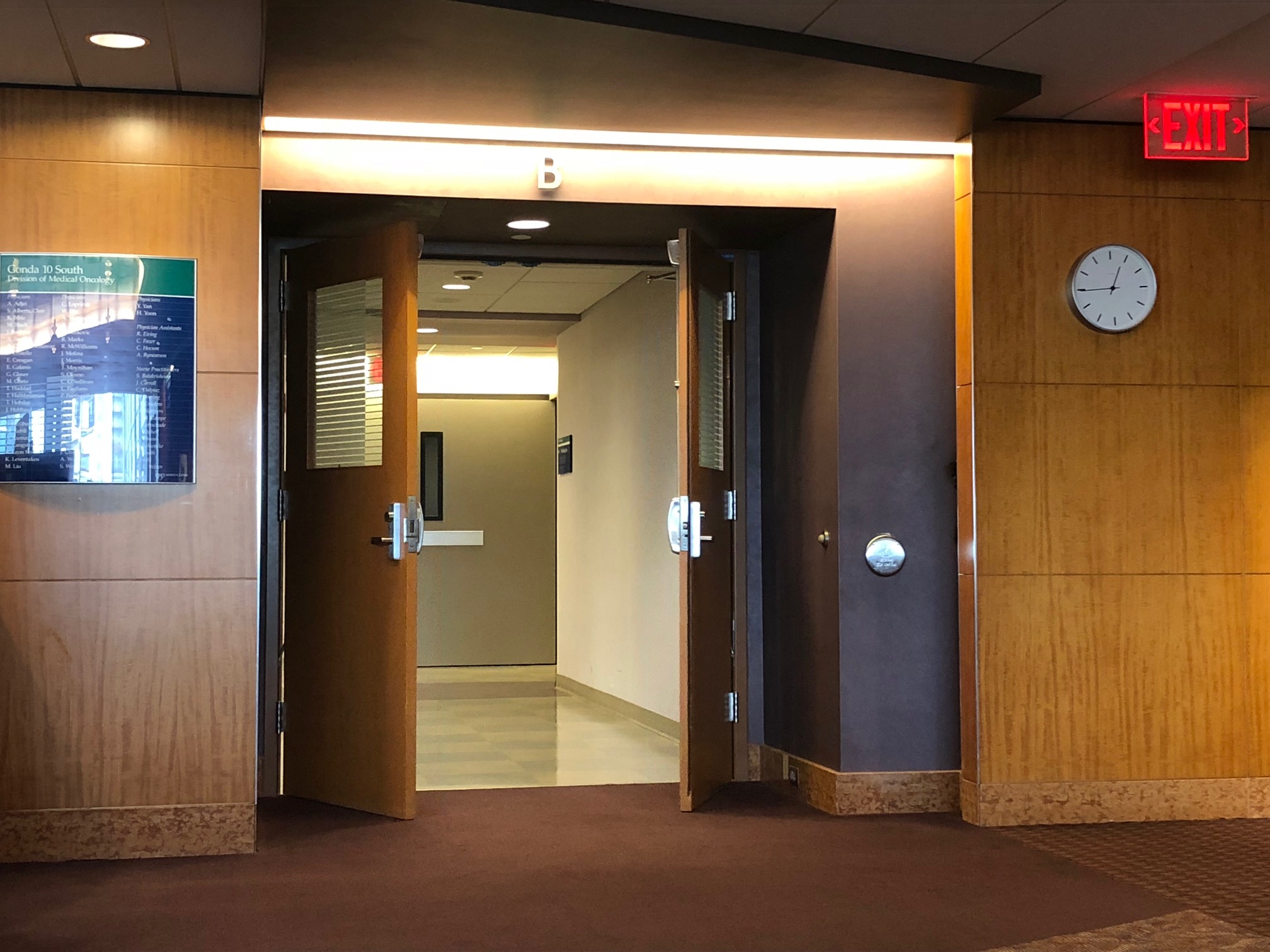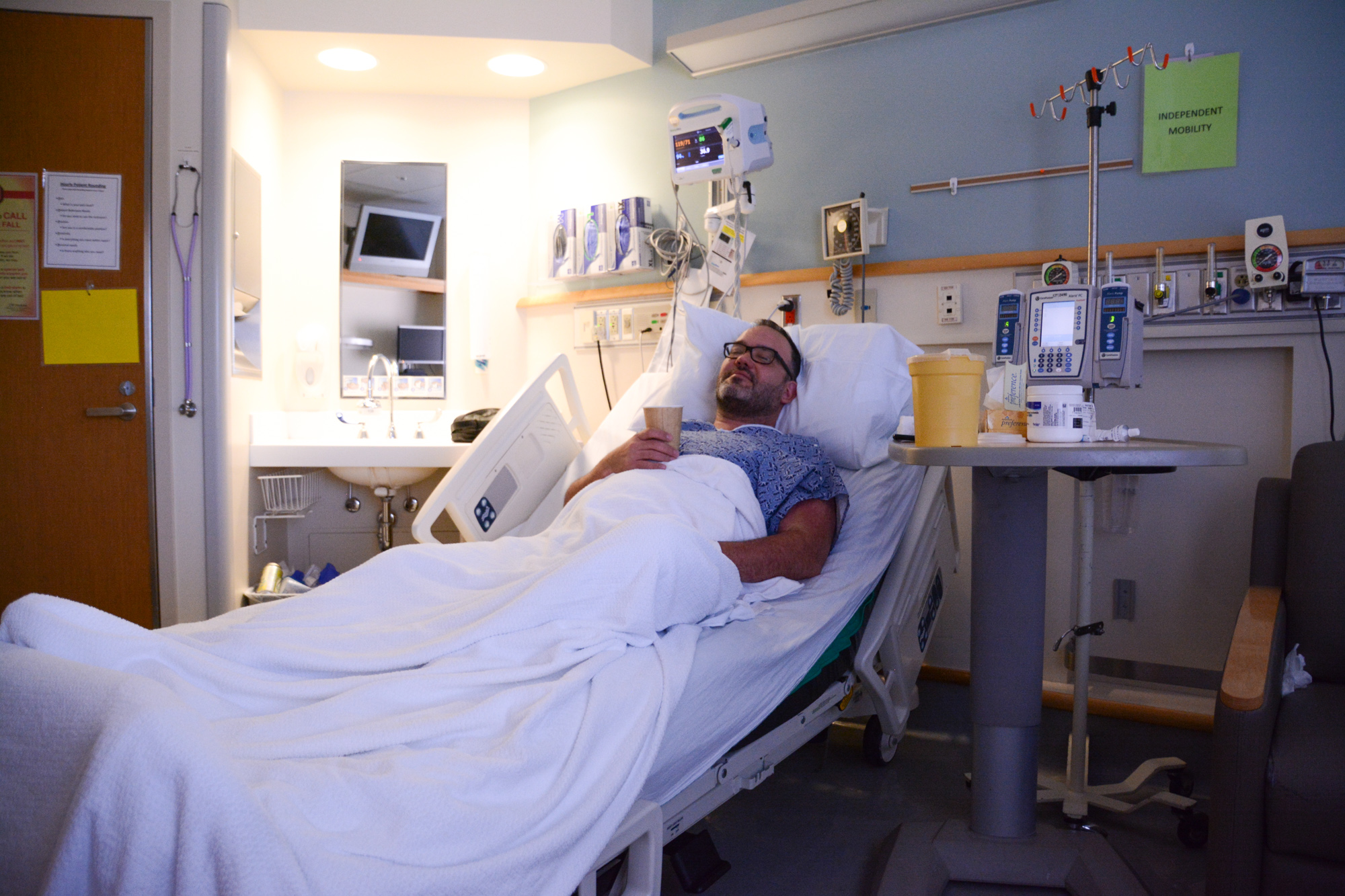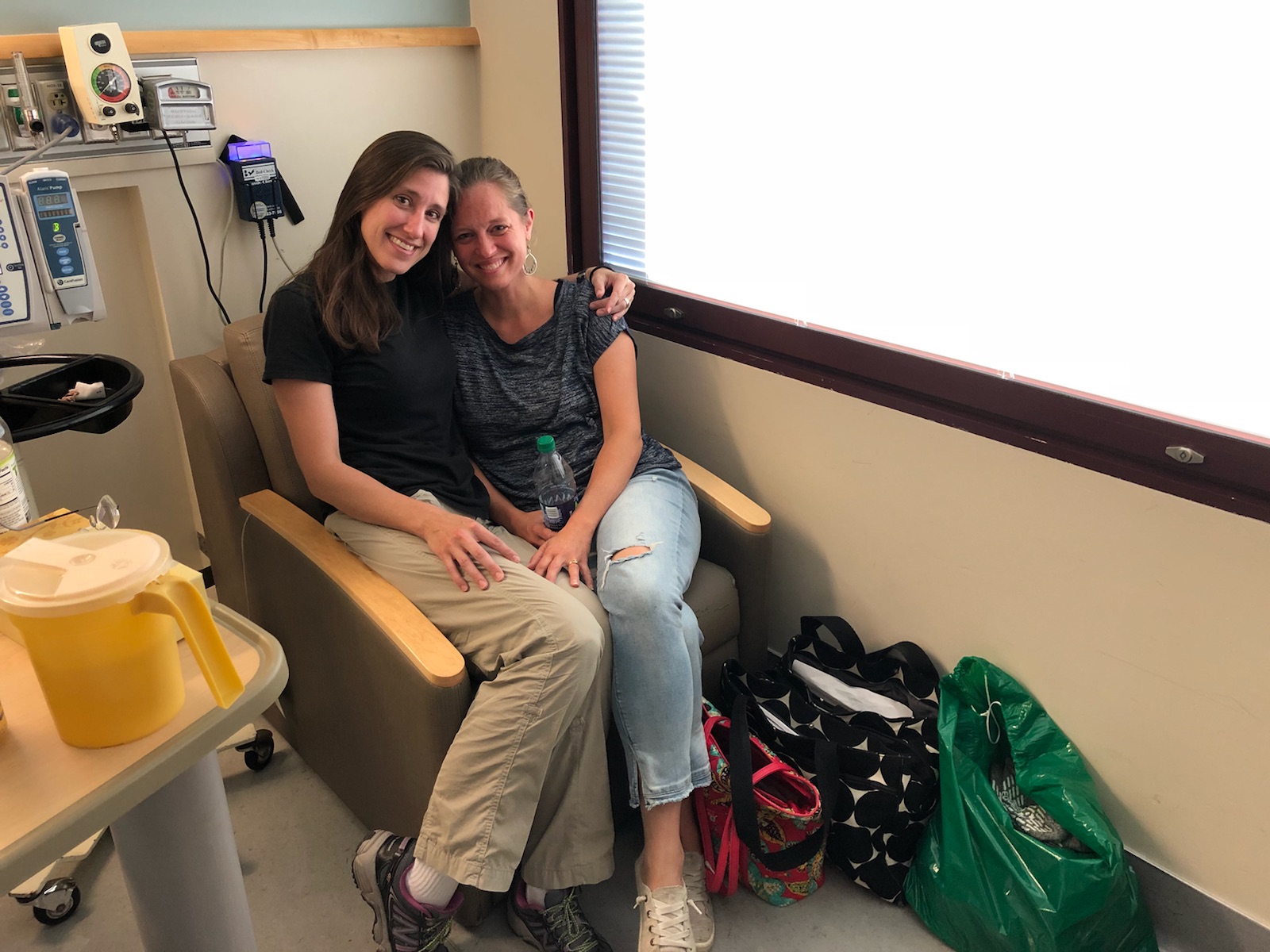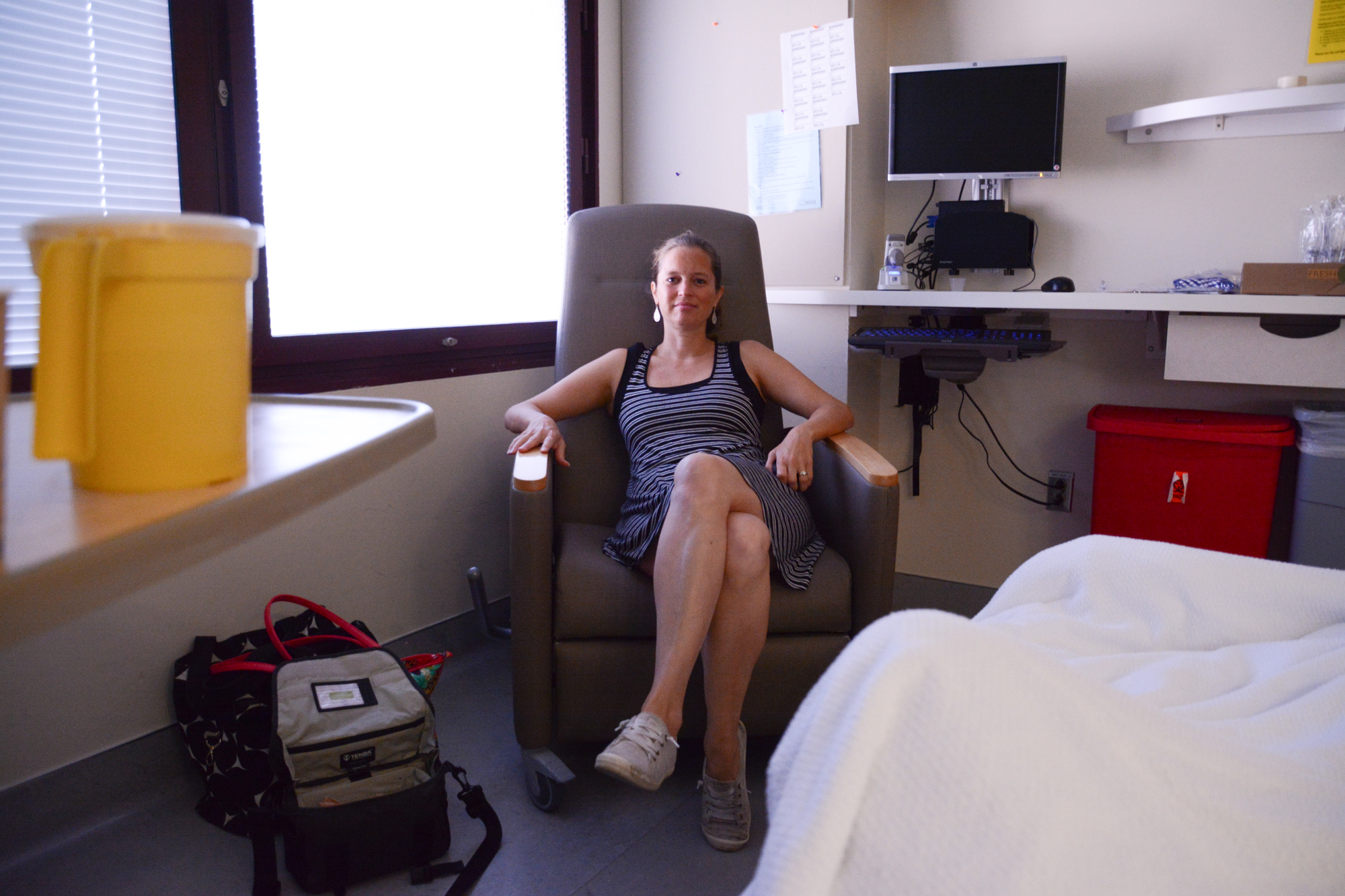
In my 42 years of living, I’ve had the fortune of knowing three people who are ridiculously good at asking questions. A high school friend, a college friend, and someone who’s served as a mentor to me in recent adult years.
Today, I’m summarizing a month of medical activity with a story about how one of those friends asked a perfectly-timed question on a perfectly-timed day…
When my husband finished his third immunotherapy treatment for metastatic uveal melanoma, started complaining about headaches, was visibly distressed, napped all afternoon, then texted “I don’t feel well at all” after I’d been floating down the river with three 13-year-old girls for four hours, questions bumped all over my mind as I sped home from Fall City Floating.
When I found him in bed with chills, nausea, body aches, a headache that had become terrible, and a fever of 103.2, fight or flight set in. I was fighting. Hard. Fighting to the bone for this man, this husband of mine. Here we go. Off to the ER, just as the doctor had suggested.
When they drew blood, sampled urine, ran an x-ray and cultures of blood, but there were no identified sources or reasons for the terrible headache, super high fever, or any of the other symptoms, I was confused. All of this for nothing? No reason? No cause? That can’t be possible.
When they brought in not one doctor, but two, to give us the option of a spinal tap to see if this was viral meningitis or bacterial meningitis, I wasn’t sure what to say. How would I know what was the best decision? Aren’t you the professional here? Clearly this is serious, but if it was super serious, wouldn’t you be telling me what needs to be done instead of asking me?
When we decided against the spinal tap, they gave him Tylenol, an even heavier pain reliever, nausea meds, IV fluids, monitored him for another hour or two, and confirmed he was a “reliable patient” with a caregiver to monitor him closely in the comfort of home, I wasn’t so sure. I was nervous, didn’t feel good that we didn’t have answers, was hoping he would be okay, and hoping I would be the caregiver he needed.
So when we ended up in the ER for a second time in less than 48 hours because a bad-to-the-bones full-body rash developed after the first ER visit, he still had a fever, body aches, chills, headache, and then his face and lips were swollen and they were thinking he needed a brain MRI and the spinal tap we opted against the night before last, I was in full-on something-is-wrong mode.
When there was blood in his urine, his kidneys were showing signs of distress, they brought the head ER doc on board with the case, took a biopsy of the rash, and my husband was admitted to the hospital, I knew this was serious.
When the brain scan came back clear, showing no signs of metastasis to the brain, the fever was gone, and they put him on a 50 mg dose of Prednisone to reduce inflammation in the body, I was relieved. Our worst fears hadn’t come true. It hadn’t spread to the brain. Hallelujah. Some One was helping. Somebody was helping. Something was helping.

When I went home to sleep for the night, and came back to a loopy, pumped up, and talkative husband who HADN’T slept all night because of Prednisone, I was taken aback. Who is this man?! Are we really in the hospital? Did all of this JUST happen? How is my brain supposed to wrap around all of this information? The rash was still horrific. Head to toe, worst shoulders to knee, both front and back of his body. It had turned a darker purple and was visually alarming. They added a topical steroid, and asked us to apply it twice a day.
When they narrowed the diagnosis to “drug-induced lichenoid” or “drug-induced Lupus,” and told us they may or may not need to stop immunotherapy as a result of this severe drug reaction, I wasn’t sure what to think. Another diagnosis? STOP immunotherapy? What does that all mean, and what does that mean for our future?
So when my best friend from college and her husband arrived at the hospital that morning my husband was looped up, pumped up and oh-so talkative after being on steroids for 12 hours, I was so incredibly grateful and relieved. A familiar face. A safe space to talk and be. Therapy, a change of pace for me, my husband, all of us. We laughed, swapped stories, shared lessons and learnings on parenting teenage girls with iPhones, talked work, health and life.
When the first round of laughing and swapping stories was done, my friend and her husband went to the cafeteria to grab lunch. When they returned with salads, sandwiches, yogurt and bananas, my college friend, the friend who ALSO happens to be ONE of those THREE people who are ridiculously good at asking questions, got serious and directed a question straight at me, just for me, the caregiver.
There it was.
On the table.
Sitting there in the quiet space between us.
She and her husband on one side of the room.
Me and my husband in a hospital bed on the other side.
The question lingered a bit before I got around to answering.
“Good question,” I responded, then I began an answer.
Here’s the miracle and moral of the story. Within 10 minutes of my friend asking that one simple question, our conversation led to the heart of the matter. Within 10 minutes, the question she was insightful enough to wonder and brave enough to ask led to the deepest, most pressing question I’d had rumbling and tumbling around in my heart since my husband’s metastatic uveal melanoma diagnosis two months prior. Her question led to the heart of the matter. And that, my friends, is the power of a good friend. It is also the perfectly-timed power of a question for a caregiver.

Do you have a good friend? A really good friend?
Do you have a friend who knows how to ask the very-best questions?
Do you know how to ASK very-best questions?
Truth be told, I don’t know if I’m awesome at asking questions. I can tell you this for sure, I strive to be someone who’s awesome at asking questions. Because I know the power of a GOOD question. It’s more powerful than any statement, any argument, any logic or any matter. Questions are where it’s at, folks.
Here’s what I know from observing my three friends who are incredibly gifted at asking questions.
- They are all incredibly good listeners. They listen to what is being said, but they ALSO listen to what is NOT being said. They listen to the spaces between.
- Their timing is impeccable. If you are a good listener, then naturally, the timing of your question will not only be perfect, but impeccable. Listen carefully. Follow someone’s story. Join their journey. And you will see, there are questions that need to be asked, terrain that’s waiting to be explored, questions that are yet to be answered. What you do with someone’s story, how you listen, how you respond is crucial. Don’t just blab on and on. Sit. Listen. Wait. Watch. And your timing WILL be impeccable, too.
- Their perfectly-timed questions open doors to truest matters of the heart. Good questions don’t need to be complicated. They just need to be the right questions at the right time. If you ask a simple, but good question at the right time, you are offering space for the other person to respond with authenticity. Ultimately, this offering of time and space will lead to beautiful places. I promise you.
- They don’t feel a need to fill space with more talking. They just ask the question, provide space for the answer, and then follow-up with conversation and more questions as they feel led. My friends, questions are NOT powerful UNLESS we allow space for authentic answering. This seems obvious, but most people don’t know how to wait and listen for answers. This requires time, patience and self-sacrifice. But I promise you, if you ask a good and right question at the right time, it will reap rewards greater than you would’ve ever imagined.
- They don’t pretend to know it all. They don’t pretend to have answers. They just sit with you as you answer their question. They listen. They take it in. They offer their divine presence. They don’t promise roses and wine, peace or triumph. They don’t suggest you change your attitude or find perfect peace in God’s perfect plan. They ask, and then they listen. That is the mark of a true friend. That is the mark of a good question. It doesn’t have a right or wrong answer. The answer is the answer. The answer will lead to more questions. The questions will lead to deeper relationship. And if things really line up, the questions and answers will lead you back to the heart of God, your creator.

So she sat with me, that friend. She sat with me in spirit from across the hospital room, and then after she asked that question, after we got to the heart of the matter, after I started crying because that was the question I’d been asking myself for two long months, she joined me and sat with me on a hospital chair made for one. Because that is the mark of a friend. That is the hallmark of a good question. That is the power of a perfectly-timed, perfectly-formulated question for a caregiver. You can’t make this stuff up. You have to live IN it. Be there IN it with someone who’s going through something tough, something unbearable. Just ask a question. And be there to hear the answer. It isn’t a quick process by any means, but it’s beautiful.
We’ve been through a lot in that month since the hospital visit. Tests came back positive for drug-induced Lupus. Immunotherapy has been put on hold; we had to skip the infusion that was scheduled for two weeks ago. Liver enzymes were up, down a bit, and are back up again and not coming down. Scans are scheduled for sooner rather than later. We’ve taken family pictures and are working with a lawyer on updating our wills. We enjoyed a late night of country music ballads on the porch, have a seaside adventure planned for our family of five, and thanks to the energizing miracle of Prednisone, my husband is successfully managing a crazy busy three weeks at work. Tomorrow we go in for scans. Who knows what tomorrow will bring. But I rest now, assured that I have people who KNOW how to ask good questions, questions that get to the heart of the matter, questions that resonate with my caregiver’s heart, questions that meet me in my uncertainty, and questions that remind me that people care, people understand, that people are here for me and want what’s best for me.
May I strive to ASK as many good questions as I’ve BEEN ASKED. May that be my future. A future of ASKING questions that are perfectly timed, perfectly crafted, perfectly held in space and time. May this be YOUR future as well. To ask as many good questions as you’ve been asked.
